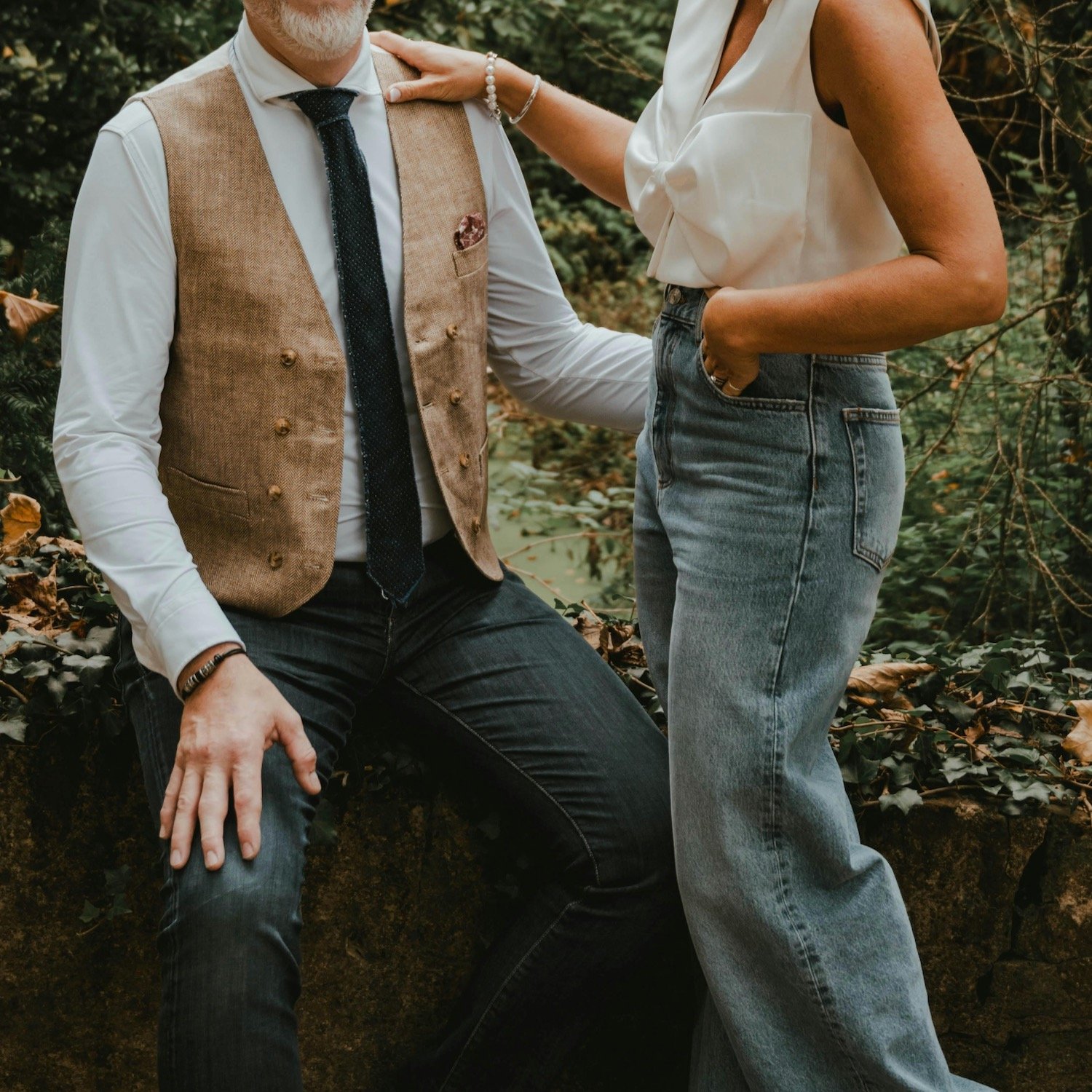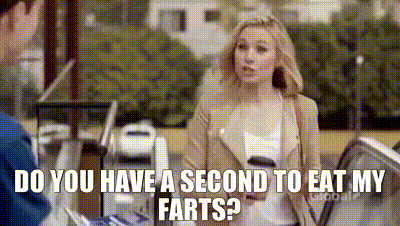How To Be A Less-Horrible Person In 3 Easy Steps!
by Audie Metcalf
I’m not implying that you’re a horrible person. Though you probably are. We are all terrible in our own, special way. We are all (hopefully) working on our failings and our flaws that are unique to us and to the traumas from childhood that create manifold systems and tools as adults that ultimately don’t serve us or the people around us, so bravo/a to all that.
But these three horrible things are universal in almost all of us, and I find that most of us do them, regardless of how “good” we are as people.
Shall we dive in?
1. Stop Talking About Other People.
The first step, the only step to take on if you’re only going to take on one step, is to stop talking about other people’s failings. And I don’t necessarily mean gossip, which has actually been shown to have some positive benefits and is proven to be hardwired in us. This is not about curbing those delicious moments like discovering your former boss who you loathe is now dating that girl 18 years younger than him who you also loathe — because unless you’re the Dalai fucking Lama, you’re just not going to resist those.
What I’m talking about is sitting with your good friend, talking about your other good friend, and how they haven’t accomplished as much with their lives as they should have, and how you know all the reasons why they haven’t, and how sad it is. Or during brunch with your group of friends, breaking down every element of why your other friend can’t seem to find a boyfriend, because she is SO lovely and funny and charming and maybe guys are intimidated by her and how successful she is.
Even though it feels like you’re “concerned” and you “just want to help,” you are actually “just being a bad friend.” Swimming around in the muck of other people’s failings just lets us relish in the fact that we’re not in that muck with them. And ultimately, what we are revealing is our own sad insecurities; it has nothing to do with helping our friends or being good people. If it did, we would just help them.
For those of us who struggle with pride-based identification (my hand shot up), we might hang our hats on our need to go through these exercises as a means to gaining insight about our friends, our families, ourselves. And in some cases, this can be true.
But even still, if you’re finding yourself in a loop of criticism about someone else in your circle, ask yourself why you’re hung up on it. Talk to your therapist about why it bothers you. Write it down in one of the many blank journals you own. If someone else’s deficiencies are fascinating enough to discuss, it’s a big indication that something about it is triggering to your sense of self and your sense of pride. Use it as a window into yourself. Not as a way to externalize your own lack of self-awareness.
And as a post script, if you’re thinking about “only” talking shit with your spouse or significant other, this still counts as being a jerk. First, it cements a certain kind of dynamic that can become a habit in your relationship, and that habit is one that creates a lack of accountability and general negativity in your relationship, because it teaches both parties that externalizing our own shit onto other people instead of dealing with it is ok.
Second, remember how we all claim to want people who “challenge” us? For the record, I mostly call bullshit on that, but if you’re someone who has ever said that, then live up to it here. Tell your partner you want him or her to challenge you not to do this. The miraculous outcome will be that you both do it less, and you’ll have more time to fight over who empties the dishwasher more.
2. Stop Hating People For Existing.
I can really speak to this one. For there is no greater expert on the subject. I hear someone speak with a higher-pitched voice than I would prefer, and feel myself wishing they would evaporate. On the one hand, fine, you’re right, this might be tied up with my misophonia (fun, do you have it, too?), but it’s most certainly also tied up with extreme judgment, and lack of gratitude. Even writing the word gratitude is hard for me. It feels witchy and annoying.
But if you become semi-enraged while glancing at the overly affectionate, hipster couple with matching geometric calf-tattoos in the line at Starbucks, or hearing teenagers shout unfunny things to each other in a giant group while wearing idiotic clothing, or watching the woman in front of you at Ralph’s pay for her groceries with 2 years past due coupons rendering your “quick” dash for oat milk an endless and god-forsaken nightmare, perhaps you, too, are an a*hole.
When we are quick to judge, it usually means we have a beautifully sophisticated set of tools that we use to make ourselves feel protected and good and righteous and worthy! Well done us! Except…these tools are highly outdated. We are likely using these tools because we came from a deeply critical household where WE were deeply criticized, or from neglect around our core needs, or any host of issues from our fucked-up childhoods. There are perfectly reasonable explanations for why we are judgmental. But understanding why you are judgmental doesn’t make you any less judgmental. And judging people is a little bit like that axiom about drinking the poison and waiting for the other person to die. It’s US who have to sit inside of all of this judgement. And no matter what, it makes us horrible.
If you, too, recoiled at the word “gratitude,” you’re not alone. The writer of this article finds it to be a very difficult idea. But if you ask yourself to simply notice ONE thing a day that you really like or even love, your mind will actually begin to notice things you like or even love, rather than it seeking things you hate. Noticing things you love builds a bridge to a richer sense of yourself in the world. Read this Harvard shit if you don’t believe me.
3. Stop Dealing With Things In The Moment.
Here’s something that I don’t have a bunch of fancy links and studies to support. In the editorial world we lovingly call this “anecdotal” but this semi-recent discovery has felt like a goddamn revelation, so I’m sharing it — journalistic integrity be damned.
For some of you, the following advice might sound like what you already do. For the rest of you, the ones who describe yourselves proudly as “fiery” and “intense,” you are likely unafraid of conflict, and sometimes, you even seek it. We couch these characteristics in positive little wrappers and call ourselves “passionate!” and “unafraid of confrontation!” when in reality, we are all probably what science would call “emotionally flooded” and “reactive.”
I used to think that it was smart and strong to defend myself when I was wronged. Right there. Right in the moment. Fuck those people. No one gets to treat me shabbily. And it’s hard to argue otherwise if someone is objectively being cruel to you. And for many of us who have clawed our way out of feeling gaslit or diminished for most of our childhoods, it feels incredible, triumphant even, to be able to notice and distinguish when people are treating us poorly, and react with strength and boundaries.
But here’s what I’ve found.
It’s better not to.
Maybe not forever. But in the moment.
In the moment, there is a reason your good friend didn’t look up from their phone when you told them your huge news about work. There’s a reason your friend gave you a backhanded compliment on a day you looked impossibly chic. There’s a reason your partner made it all about him when you shared your revelation in therapy. And those reasons? They’re not about you. All of them are about them, and their limitations. And in the moment, firing back about how shitty they are typically brings out the worst in them (because look how shitty they were to even say it in the first place) and usually, reacting in that moment isn’t about defending yourself, it isn’t about lovingly drawing a boundary, it isn’t about making your side heard.
It’s about punishing them.
Fiery, passionate, unafraid, confrontational, intense, whatever you want to call it, we are balls of combat, waiting for a partner.
So, here’s what you do.
Just wait a minute.
I have found that I’m 90% less stung the next day. I have also found that most of the situations work themselves out by the person coming to me to apologize, or showing their contrition in their own way. For the few that remain, I have now had enough time to realize what exactly felt bad, why it felt bad, and how to articulate it to truly help the person understand how it made me feel, not to make them feel just as bad.
This method helps to manage any “abreactions” we might have — these are our unconscious responses to current stimuli which may be attached to previous feelings or trauma. And none of this is to say that people treating us poorly is ok. It’s not ok. But if we cultivate in ourselves the choice to wait, and not instantly react, we give ourselves the gift of the bigger picture, and the gift of choice of how we want to deal with it.
For everyone reading this whom I’ve never met, ask someone to hold you accountable for one of these – for all three if you’re Type A. For everyone reading this who knows me, hold me to it. Challenge me. I’ll do the same for you.
Audie Metcalf is the Editor-in-chief of The Candidly, and lives in LA with her family. You can find more of her articles here.









